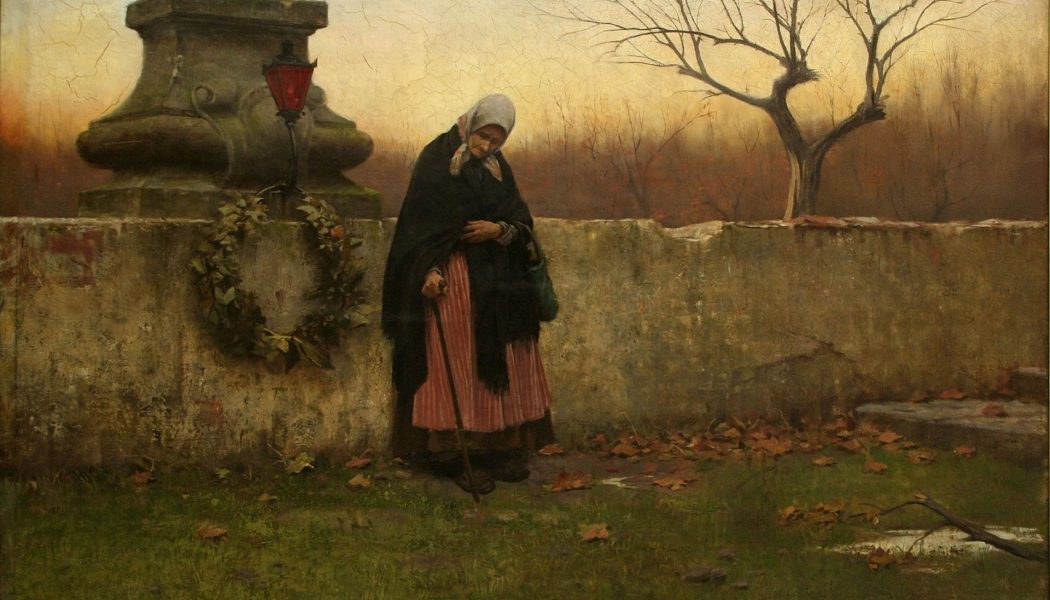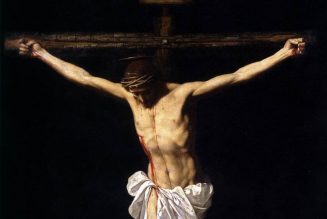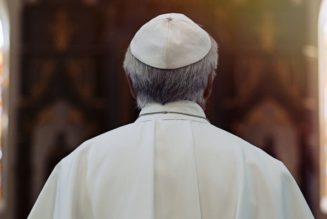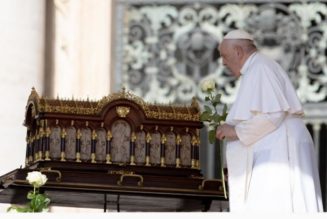
I have blogged before on Purgatory. Here is a link to one of those blogs: Purgatory – Biblical and Reasonable. I have also written more extensively on its biblical roots here: PDF Document on Purgatory.
On this Feast of All Souls, I want to reflect on Purgatory as the necessary result of a promise. Many people think of Purgatory primarily in terms of punishment, but it is also important to consider it in terms of promise, purity, and perfection. Some of our deceased brethren are having the promises made to them perfected in Purgatory. In the month of November we are especially committed to praying for them and we know by faith that our prayers are of benefit to them.
What is the promise that points to Purgatory? Simply stated, Jesus made the promise in Matthew 5:48: You, therefore, must be perfect as your Heavenly Father is perfect. In this promise is an astonishing declaration of our dignity. We are to share in the very nature and perfection of God. This is our dignity: we are called to reflect and possess the very glory and perfection of God.
St. Catherine of Siena was gifted by the Lord to see a heavenly soul in the state of grace. Her account of it is related in her Dialogue, and is summarized in the Sunday School Teacher’s Explanation of the Baltimore Catechism:
The Soul in the State of Grace– Catherine of Siena was permitted by God to see the beauty of a soul in the state of grace. It was so beautiful that she could not look on it; the brightness of that soul dazzled her. Blessed Raymond, her confessor, asked her to describe to him, as far as she was able, the beauty of the soul she had seen. St. Catherine thought of the sweet light of that morning, and of the beautiful colors of the rainbow, but that soul was far more beautiful. She remembered the dazzling beams of the noonday sun, but the light which beamed from that soul was far brighter. She thought of the pure whiteness of the lily and of the fresh snow, but that is only an earthly whiteness. The soul she had seen was bright with the whiteness of Heaven, such as there is not to be found on earth. ” My father,” she answered. “I cannot find anything in this world that can give you the smallest idea of what I have seen. Oh, if you could but see the beauty of a soul in the state of grace, you would sacrifice your life a thousand times for its salvation. I asked the angel who was with me what had made that soul so beautiful, and he answered me, “It is the image and likeness of God in that soul, and the Divine Grace which made it so beautiful.” [1].
Yes, this is our dignity and final destiny if we are faithful to God.
So, I ask you, “Are you there yet?” God has made you a promise. But what if that promise has not yet been fulfilled and you were to die today, without the divine perfection you have been promised having been completed? I can only speak for myself and say that if I were to die today, though I am not aware of any mortal sin, I also know that I am not perfect. I am not even close to being humanly perfect, let alone having the perfection of our heavenly Father!
But Jesus made me a promise: You must be perfect as the heavenly Father is perfect. And the last time I checked, Jesus is a promise keeper! St. Paul says, May God who has begun a good work in you bring it to completion (Phil 1:6). Hence, if I were to die today, Jesus would need to complete a work that He has begun in me. By God’s grace, I have come a mighty long way. But I also have a long way to go. God is very holy and His perfection is beyond imagining.
Yes, there are many things in us that need purging: sin, attachment to sin, clinging to worldly things, and those rough edges to our personality. Likewise most of us carry with us hurts, regrets, sorrows, and disappointments. We cannot take any of this with us to Heaven. If we did, it wouldn’t be Heaven. So the Lord, who is faithful to His promise, will purge all of this from us. The Book of Revelation speaks of Jesus ministering to the dead in that he will wipe every tear from their eyes (Rev 21:4). 1 Corinthians 3:13-15 speaks of us as passing through fire in order that our works be tested so that what is good may be purified and what is worldly may be burned away. And Job said, But he knows the way that I take; and when he has tested me, I will come forth as pure gold (Job 23:10).
Purgatory has to be—gold, pure gold; refined, perfect, pure gold. Purgatory has to be, if God’s promises are to hold.
Catholic theology has always taken seriously God’s promise that we would actually be perfect as the Father is perfect. The righteousness is Jesus’ righteousness, but it actually transforms us and changes us completely in the way that St. Catherine describes. It is a real righteousness, not merely imputed, not merely declared of us by inference. It is not an alien justice, but a personal justice by the grace of God.
Esse quam videri – Purgatory makes sense because the perfection promised to us is real: esse quam videri (to be rather than to seem). We must actually be purged of the last vestiges of imperfection, worldliness, sin, and sorrow. Having been made perfect by the grace of God, we are able to enter Heaven, of which Scripture says, Nothing impure will ever enter it (Rev 21:27). And again, you have approached Mount Zion and the city of the living God, the heavenly Jerusalem, and countless angels in festal gathering, and the assembly of the firstborn enrolled in heaven, and God the judge of all, and the souls of the just made perfect (Heb 12:22-23).
How could it be anything less? Indeed, the souls of the just made perfect. How could it be anything less if Jesus died to accomplish it for us? Purgatory makes sense based on Jesus’ promise and on the power of His blood to accomplish complete and total perfection for us. This is our dignity; this is our destiny. Purgatory is about promises, not mere punishment. There’s an old Gospel hymn that I referenced in yesterday’s blog for the Feast of All Saints that says, “O Lord I’m running, trying to make a hundred. Ninety-nine and a half won’t do!”
That’s right, ninety-nine and a half won’t do. Nothing less than a hundred is possible because we have Jesus’ promise and the wonderful working power of the precious Blood of the Lamb. For most, if not all of us, Purgatory has to be.
Join Our Telegram Group : Salvation & Prosperity








